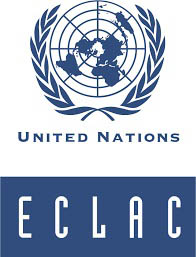With Latin America and the Caribbean facing the COVID-19 pandemic “from a weaker position than the rest of the world” there is, as yet, no telling what the pandemic’s economic impact on the region is likely to be at this stage, according to a recent assessment undertaken by the Economic Commission for Latin America and the Caribbean (ECLAC).
The assessment undertaken in April and titled “Latin America and the Caribbean and the COVID-19 pandemic: Economic and social effects,” states that prior to the onset of the pandemic it had projected that GDP would grow by a maximum of 1.3% this year. That forecast, however, has now been sharply revised downwards, with GDP now predicted to contract between 3% and 4% “or even more.” The final economic impact, it says, “will depend on the actions taken at the national, regional and global levels.”
ECLAC identifies various “external transmission channels” through which, it says, COVID-19 is impacting the region, namely; the decline in the economic activity of the region’s main trading partners; the drop in commodity prices; the interruption of global value chains; lower demand for tourism services; greater risk aversion; and worsening global financial conditions.
With regard to the decline in the economic activity of the region’s main trading partners, ECLAC says that the region’s heavy dependence on exports will be its main vulnerability since export markets will be compromised by the global recession. According to the ECLAC assessment, the value of the region’s exports could fall by “at least 10.7%” in 2020 with most of the reduction in export value attributable to the fall in their prices, estimated to be 8.2%, while in addition, export volume is expected to contract by 2.5%.
ECLAC contends that likely sharp falls in the prices of the region’s commodity exports and deterioration in terms of trade is likely to have “a strong negative effect’ on income levels in the region while reduced demand for tourism services will impact severely on the region’s small-island developing states in particular. “If the greatest effects of COVID-19 are felt in the second quarter of 2020 and take the form of three-month travel bans or self-imposed travel restrictions, tourism in the Caribbean is expected to contract by 25%,” ECLAC says.
Much of ECLAC’s focus insofar as the impact of COVID-19 in the region is concerned is focussed on the tourism industry – the sector most immediately and significantly affected by the onset of the pandemic. “The impact has been particularly dramatic in the Caribbean, where, for several economies, tourism revenues accounted for more than 20% of GDP in 2018” but where, in a scenario with a 10% drop in tourism revenues in 2020, “GDP would fall by 0.8, 0.3 and 0.1 percentage points in the Caribbean, Mexico and Central America, and South America, respectively. In a more negative scenario, in which tourism revenues decrease by 30% in 2020, the drop for these sub-regions would be 2.5, 0.8 and 0.3 percentage points, respectively. The knock-on effects on employment, household incomes and government revenues would be greatest in the Caribbean, where the sector employs some 2.4 million people and accounts for 15.5% of GDP,” ECLAC says, adding that “the effects of the decline in tourism will be felt in particular by micro and small enterprises which carry enormous weight in the hotel and restaurant sector, accounting for 99% of enterprises and 77% of employment.
With the Caribbean looking mainly to the United States and Canada for its tourist market, ECLAC says that “the full extent of the impact of COVID-19 on tourism will depend on the effects of the health and socioeconomic actions taken in the countries and regions from which most visitors come.”
Meanwhile, ECLAC informs that those sectors most affected by social distancing – namely, trade, transport, business services and social services – provide 64% of formal employment in the region. “In addition, 53% of employment in the region is in informal activities, which will be severely affected as they rely on interpersonal contact to a large extent,” ECLAC adds.










